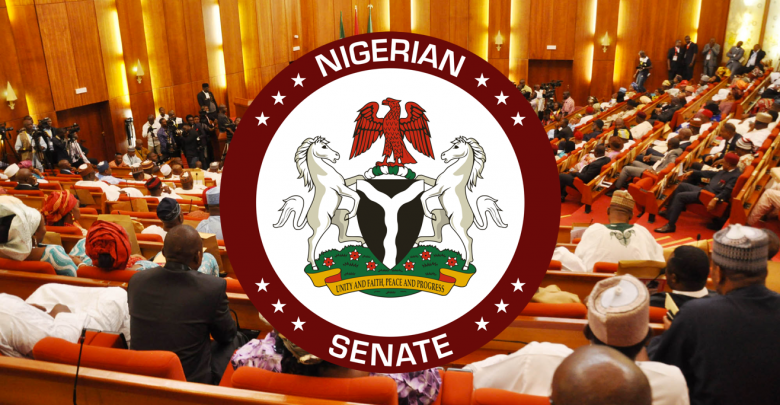Everything to know about the Electoral Act Amendment Bill Saga
The Nigerian National Assembly had faced criticism in recent times over the decision to ban the proposed electronic transmission of election results in Nigeria.

Last Sunday, several reports had it that the National assembly leadership has blocked the proposed electronic transmission of election results in Nigeria.
The Independent National Electoral Commission (INEC) had adopted the electronic transmission of results in some previous elections to the admiration of many stakeholders, particularly in the September 2020 Edo State governorship polls.
The Independent National Electoral Commission (INEC) chairman, Prof Mahmud Yakubu, had urged the National Assembly to amend the Constitution and the Electoral Act to make provision for electronic collation and transmission of election results.
The senate had prepared to pass the Electoral Act amendment bill on Tuesday but the sudden emergence of a strange Section 50(2), which completely outlaws transmission of votes by electronic means, generated a lot of tension and controversy.
The section which the committee claimed was smuggled into the final copy of the Bill read that: “Voting at an election under this Bill shall be in accordance with the procedures determined by the commission, which may include electronic voting provided that the Commission shall not transmit results of the election by electronic means.”
Reports have it that the smuggled section was never part of the provisions agreed upon between the stakeholders and the Senate Committee on INEC during their various engagements.
Critics on Monday had called attempts by the federal legislators to expunge the electronic transmission of results from the draft bill as a plot to rig the 2023 general election ahead of time.
About 22 Civil Society Organisations (CSOs) had raised the alarm over the alleged plan by the National Assembly to pass the bill without the inclusion of the electronic collation of results in the bill.
The CSOs, in a statement on Monday, said the manipulation of Section 50(2) would undermine INEC’s efforts to improve the election results management regime.
It was gathered that some of the committee members, who were apparently embarrassed by the report that the bill banned the electronic transmission of election results, expressed concerns and emphasized the need for the committee to revisit the report.
The committee called the meeting to take a holistic look at the draft of the bill, The meeting took place at the Senate committee rooms and was attended by 12 committee members with Senator Kabiru Gaya presiding.
It was learned that members of the committee insisted that all the clauses in the draft bill should be taken one after the other to avoid any misrepresentation.
When the committee got to page 25 of the document and subtitled procedure at an election under Section 50(2) of the bill was reworked to read: “Voting at an election under this bill shall be in accordance with the procedure determined by the commission (INEC), which may include electronic voting provided that the commission may transmit results of elections by electronic means where and when practicable.”
The meeting lasted for over four hours with the committee members insisting that the final draft be produced for them to assent before ending the meeting about 5 pm.
However, reacting to the allegation of a plot by the National Assembly to rig the 2023 general election ahead of time, the President of the Senate, Dr. Ahmad Lawan, said presiding officers were not tampering with the workings of committees of both chambers on the Electoral Act Amendment Bill 2021.
He spoke in Abuja during the inauguration of the National Commissioners of the Public Complaints Commission (PCC).
He said: “Let me seize this opportunity to react to insinuations being made against the leadership of the National Assembly as regards the 2010 Electoral Act ( Amendment) Bill 2021, which will soon be considered and passed at both chambers.
“Leadership or presiding officers of the National Assembly are not the ones to determine what and what provisions should be in the report to be presented, making the series of phone calls being made to us unnecessary.”
The Electoral Act Amendment Bill seeks to repeal and re-enact the 2010 electoral act has been under consideration for years. In 2018, President Muhammadu Buhari refused to sign it into law after arguing that it would disrupt the conduct of the 2019 elections.
